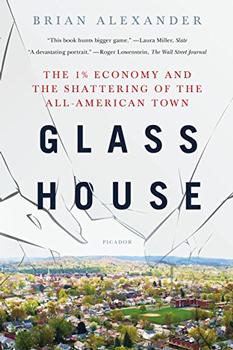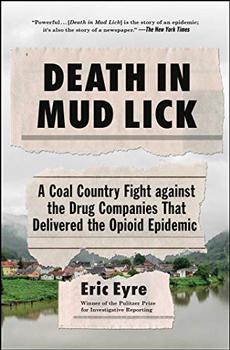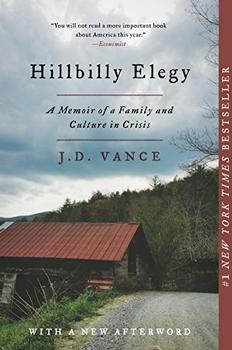Summary | Excerpt | Reviews | Beyond the book | Read-Alikes | Genres & Themes | Author Bio

Critics' Opinion:
Readers' Opinion:
First Published:
Feb 2017, 336 pages
Paperback:
Jan 2018, 336 pages
 Book Reviewed by:
Book Reviewed by:
Norah Piehl
Buy This Book
Brian Alexander's Glass House opens with the image of a cop, Eric Brown, a veteran of the force in Lancaster, Ohio, on the verge of tears about the drugs and crime that have infested the town he's sworn to protect. "The weight of it, the pressure, wanting to make things right…" Brown says, seemingly powerless in his attempts to articulate the sharp decline of this manufacturing town over the course of a half-century.
Following this and some other glimpses into contemporary life in Lancaster – the CEO working to undo decades of mismanagement, the young man who simultaneously hates and needs his glassworks job, the people who are working three jobs or who have fallen prey to opiates – Glass House turns back the clock to 1947, the year when Forbes magazine profiled Lancaster as the ideal all-American town. "This Is America," proclaimed the cover story. What happened between 1947 and the present day? How could things take such a precipitous turn for the worse – and what lessons could Lancaster's fate teach the rest of the country?
Those are the questions that Alexander tackles in an impressive work of reporting that is also, perhaps, his most personal project to date. Alexander, whose previous books have looked at cloning and the science of sexual attraction, grew up in Lancaster, and he has personal connections with several of the people he interviews in the book. These close ties not only allow him to insert specific anecdotes of bygone Lancaster and give him a certain degree of access that other journalists would have had a hard time achieving, they also imbue the book with, if not nostalgia exactly, then a palpable and very intimate feeling of loss and genuine anger at what's happened to Lancaster's inhabitants, subject to forces beyond their control or even understanding.
It's this desire for understanding, however, that propels the narrative, as Alexander alternates between painting sympathetic portraits of present-day Lancastrians struggling to just get by and tracing the history of his hometown and, primarily, its once-thriving major employer, the Anchor Hocking Glass Company. The story of Anchor Hocking is, in many ways, the story of American manufacturing in a nutshell; from its origins in the ambitions of a young entrepreneur, to its initial takeover by one of the corporate raiders of the 1980s, to its current vastly diminished state following a series of private equity acquisitions and a dizzying series of poor management decisions, all with an eye solely on profits and on raising the stakes for investors rather than workers.
Glass House is, at its heart, an indictment of the profit-driven economic theories espoused by Milton Friedman that have guided the decisions of CEOs and investment firms for decades, resulting in choices that have decimated American industry, destroyed towns like Lancaster, and resulted in the sort of collective hopelessness of the current political situation. Alexander does a terrific job of explaining complex financial and economic issues for laypeople and, most importantly, providing a window into a world that might be largely invisible to many readers. Readers who turned to J. D. Vance's Hillbilly Elegy in an attempt to answer the question "How did we get here?" may find similar answers here, although Alexander focuses primarily on business and economic history and less on cultural concerns. Everything is connected, however, as Alexander repeatedly reinforces, which is why Glass House should be essential reading for anyone concerned about the future of American workers – regardless of what town we call home.
![]() This review was originally published in The BookBrowse Review in May 2017, and has been updated for the
January 2018 edition.
Click here to go to this issue.
This review was originally published in The BookBrowse Review in May 2017, and has been updated for the
January 2018 edition.
Click here to go to this issue.

If you liked Glass House, try these:

by Eric Eyre
Published 2021
From a Pulitzer Prize–winning reporter from the smallest newspaper ever to win the prize in the investigative reporting category, an urgent, riveting, and heartbreaking investigation into the corporate greed that pumped millions of pain pills into small Appalachian towns, decimating communities.

by J.D. Vance
Published 2018
#1 New York Times Bestseller, named by the Times as one of the "6 books to help understand Trump's win"





The House on Biscayne Bay
by Chanel Cleeton
As death stalks a gothic mansion in Miami, the lives of two women intertwine as the past and present collide.

The Flower Sisters
by Michelle Collins Anderson
From the new Fannie Flagg of the Ozarks, a richly-woven story of family, forgiveness, and reinvention.

The Funeral Cryer by Wenyan Lu
Debut novelist Wenyan Lu brings us this witty yet profound story about one woman's midlife reawakening in contemporary rural China.
Your guide toexceptional books
BookBrowse seeks out and recommends the best in contemporary fiction and nonfiction—books that not only engage and entertain but also deepen our understanding of ourselves and the world around us.